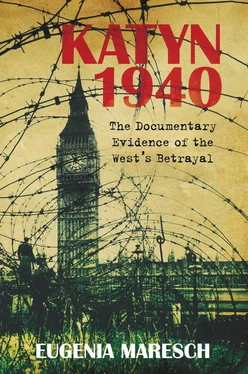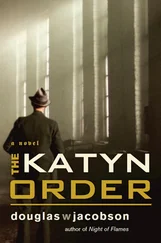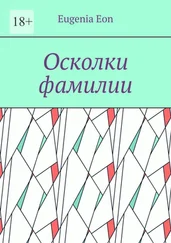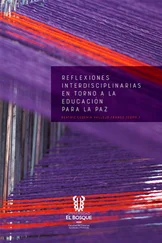Katyn. Dokumenty Zbrodni, Jeńcy nie wypowiedzianej wojny, 23 sierpień 1939 – 5 marca 1940 (Katyn, Documents of Crime, Prisoners of Undeclared War, 23 August 1939 – 5 March 1940), published jointly by Naczelna Dyrekcja Archiwów Państwowych (Directorate of The National Archives) in Warsaw and The National Archival Services of Russian Federation GARF ( Gosudarstvenny Arkhiv Rossiiskoi Federatsii ) and the Central Security Service Archives of the Russian Federation FSB RF ( Federalnaia Slusba Bezopasnosti Federatsii Rossiiskoi ) in Moscow. Editorial Committee under Aleksander Gieysztor and Rudolf Pikhoia, editorial work Wojciech Materski, Natalia Lebedeva and others. Warsaw 1995, Vol I, p.7-55, docs. 188, 216; Vol II docs. 87, 95; Vol III doc68; Vol IV docs. 197, 207, 208, 212, 221. Translated copies of the NKVD documents in four volumes, selected by the Russian and Polish historians between 1993 and 2005.
Władysław Sikorski (1881–1943). Polish General and statesman, took part in 1920 War of Independence against the Bolsheviks, Chief of General Staff, Premier and War Minister till 1925. Spent thirteen years in opposition. In 1939 escaped the German invasion via Rumania to France, formed a government in Paris, after its fall moved to GB together with armed forces, set up a coalition government in exile as its Prime Minister and Commander in chief. Died in plane crash off Gibraltar, 4 July 1943.
Katyn Dokumenty Zbrodni … Vol III document 217, Fedotov report 3 December 1941.
Władysław Anders (1892-1970), General, served as a young officer in the Tsarist army during the First World War, later joined the Polish Army and fought in 1920 War of Independence against the Russians. In 1939 commanded a cavalry brigade, wounded and taken prisoner by the Russians and held at Lubyanka prison in Moscow. Released after the Soviet-Polish Agreement of 14 August 1941. Commander of a newly formed Polish Army in USSR from thousands of Poles released from Russian imprisonment. Commander in Chief of 2 Polish Corps (under command of the British Eighth Army) who led the Poles to victory at the battle of Monte Cassino in Italy. After the Polish Forces were disbanded in 1946, remained in exile as a prominent leader of the ‘free’ Poles. Wrote memoirs, Bez Ostatniego Rozdziału (Without the Last Chapter) 1949.
Frank Noel Mason MacFarlane (1889–1953) Lt Gen. RA, served in Africa and India, Staff Capt. WWI, Afghan War 1919, GSO1 in India 1922-5, Staff officer 1928–30 in India, Military Attaché Budapest 1931–5, Vienna, Berne then Berlin 1937–39, Head of Military Mission in Moscow 1941–2, Governor of Gibraltar 1942–44, Chief Commissioner of Allied Control Commission in Italy 1944, awarded Polonia Restituta 1st class, retired 1945, became an MP.
TNA WO 32 /15548, a self-typed report by Lt Gen Mason MacFarlane, head of 30 Military Mission in Moscow, dated 7 August 1941.
Józef Czapski (1896–1993) Cavalry Captain in reserve, 8 Lancers Division, born and raised in Moscow of aristocratic family, accomplished painter who studied in Paris, survivor of Starobelsk camp. After the war published among other pieces Wspomnienia Starobielskie (Starobelsk reminiscences) Rome 1945 and Na nieludzkiej ziemi (Inhuman Land) Paris 1949.
Vselevod Nikolaevich Merkulov (1895–1953). Soviet Security official, aide to Beria specialising in cruel interrogation, member of Troika appointed 5 March 1940, to exterminate the Polish officers. In charge of ‘clearing out’ the three camps. Arrested with Beria and executed in 1953. Named with Beria in 1990 as responsible for murdering the Polish PoWs in 1940.
TNA HS 4 /243 Most Secret cipher telegram sent from No. 30 Military Mission in Moscow to the War Office DMI, MIL 681, 8 September 1941.
Frank Kenyon Roberts (1907–1998), started his diplomatic career as Third Secretary in the FO in 1930, served in Paris 1932, Cairo 1935, transferred to the FO in 1937; First Secretary in 1940, acted as Chargé d’ Affaires in Czechoslovakia; war years in FO as Head of Central Department, Chargé d’ Affaires in Moscow 1945–7; Principle Private Secretary, Assistant Under Secretary of State in 1949; High Commissioner for India in 1951, Deputy Under Secretary of State German Affairs; Ambassador in Moscow 1960–2 and Bonn 1963–8. Knighted. Dealing with Dictators , autobiography published 1991.
TNA FO 371/31083 C 4529/19/55. Translation of Captain Józef Czapski’s memorandum on missing Polish officers dated 2 II 1942. Mr H. Lacy Baggallay, acting Counsellor, British Embassy, who despatched the report to Anthony Eden at the FO, questioned the number of the missing men, believing that a far greater number of Polish prisoners of war had been sent to the extreme north-east of Siberia than originally suggested by Czapski in his 2 February report.
TNA HS 4/199 report to GOC (General Officer Commanding) Polish Army in Buzuluk Soviet Russia 1 November 1941, by Lt Bronisław Młynarski (1899–1971) Lieutenant, adjutant to Senior Officers in Starobelsk camp: Major S. Zaleski, Major K. Niewiarowski and Major L. Chrystowski successively. The report deals with missing Polish officers from PoW camps, especially Starobelsk, where he was interned from 30 IX 1939 to 12 V 1940. Part of Młynarski’s report was incorporated in ‘Facts and Documents’ compiled in 1946, p 64. After the war settled in America, where he wrote his memoirs W niewoli sowieckiej (In Soviet Captivity), Gryf publication London 1974.
Professor Stanisław Kot (1885–1975) History Professor at Jagiellonian University, politician, in 1941–2 Polish Ambassador in Moscow. After the war, at odds with the Polish Government-in-exile, a forlorn figure, died in London. Published Listy z Rosji do Gen. Sikorskiego (Letters from Russia to General Sikorski) London 1956.
Wiktor Sukiennicki (1901–1983) Professor of Law at the University of Stefan Batory in pre-war Wilno, Lieutenant in reserves, deported by the Soviets to Siberia, joined the Polish Army in USSR, called upon by Ambassador Kot to set up an Agency to record the whereabouts of the Polish prisoners from depositions made by those who survived; Author of many publications, the relevant one is Wspomnienia i Relacje (Reminiscences and Statements) published in Zeszyty Historyczne, 1982.
Zdzisław Stahl (1891–1987) economist, journalist and politician, 1930–1935 and again in 1938 member of the Polish Sejm (Parliament) representing National Party. Arrested and deported to GUL ag by the NKVD , in 1941 joined the Polish Army, engaged as Head of Biuro Studiów of 2 Corps, working on Katyn papers.
Stanisław Swianiewicz (1900–1997) Professor of Economics, born in Dyneburg, Latvia, before the Revolution studied at Moscow and Wilno Universities, Head of the East European Institute, expert in the political economy of the Soviets, published Lenin as Economist and Political Economy of Hitler’s Germany . In 1939, Lieutenant 85 Infantry Division, taken prisoner by the Russians, kept at Kozelsk camp till 30 April 1940, taken to Lubyanka and Butyrki prisons, sentenced to eight years hard labour. In 1942 released from GUL ag at the intervention of Ambassador Kot, whom he joined in Kuibyshev. Despatched to the Middle East, to join a Research Bureau in Jerusalem with the task of preparing projects for the expected Peace Congress after the war. Stayed in Great Britain as a political émigré, lectured at the Polish University College in London, then a Fellow in International Studies at the London School of Economics. In 1963 Professor at St Mary’s University, Halifax Canada and Notre Dame University USA. In 1965 Oxford University Press published his outstanding work Forced Labour and Economic Development . In 1989 published his memoirs W cieniu Katynia (In the Shadow of Katyn). Swianiewicz suggests that the meaning of Koze Gory is not Goat’s Hill, but Slanting Hills – Kose gory .
Читать дальше












